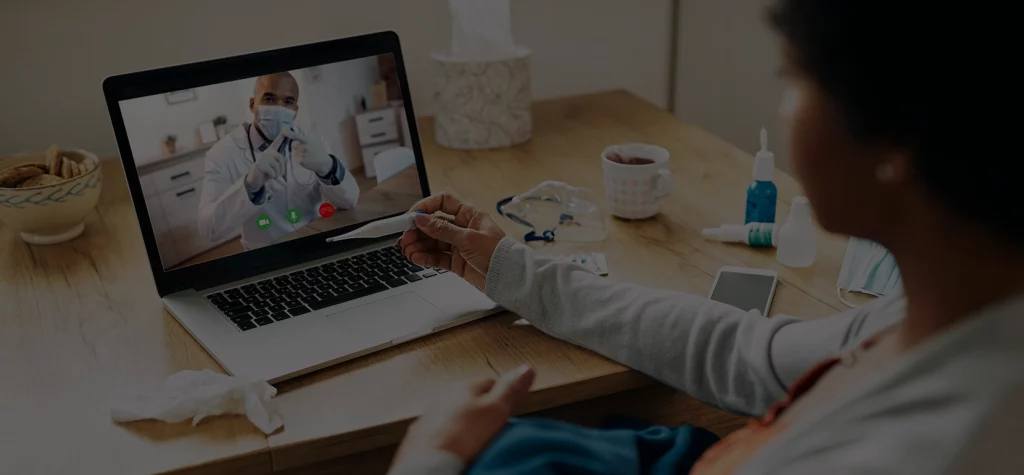2MDOpinion delivers world-class medical second opinion from top specialists, giving patients clarity and confidence in just days, not months
 Written By: Hesam Seyedi | November 5, 2025
Written By: Hesam Seyedi | November 5, 2025
You know you need another opinion—but where do you even start?
In Canada, your options range from public referrals to private or online consultations, each with its own balance of cost, speed, and access. The challenge isn’t whether you can get one—it’s finding the right path for your needs.
The Canadian Medical Association confirms that every patient has the right to request a second opinion, and doctors are expected to respect reasonable requests. It’s not about doubt—it’s about making sure your diagnosis and treatment plan truly fit you.
In this guide, you’ll learn where to turn—public health referrals, hospital programs, employer benefits, or trusted online platforms—so you can choose confidently and move forward with clarity and peace of mind.
In Canada, coverage isn’t the problem—time is. The public system allows you to get a second opinion through your family doctor or specialist, and it’s usually covered when deemed medically necessary.
The challenge is how long you’ll wait to be seen.
Most provincial health plans, like OHIP in Ontario or MSP in British Columbia, include second opinions for referred cases. But the wait times vary: specialists often take over 10 weeks to see new patients, and certain fields, such as neurosurgery, can take up to 56 weeks. That’s where planning ahead matters.
If your condition is stable and you can afford the wait, this path ensures full coverage and continuity of care with your existing medical team. You can learn more about what each province covers in The Canadian guide to provincial coverage for second medical opinions.
Covered care is valuable—but when every week feels long, it’s worth knowing your faster alternatives. Next, let’s look at how specialized programs handle second opinions for complex or serious diagnoses.
When the diagnosis is serious, one opinion often isn’t enough. Cancer, rare diseases, and complex conditions deserve a second look from experts who specialize in that field. A timely second opinion can confirm your diagnosis, uncover new treatment options, or simply give you peace of mind before moving forward.
For cancer patients, the Canadian Cancer Society recommends asking your doctor for a referral, requesting access to your medical file, and ensuring both doctors share their findings. These steps keep your care team connected and your treatment consistent.
Specialized programs across Canada—particularly within major hospitals and cancer centres—are designed to handle these requests quickly. Many provide second opinions through oncology boards or cross-specialty reviews to make sure every angle has been considered.
Two expert views today can prevent regret tomorrow. And if you’re navigating a complex diagnosis, these programs are often the safest first step before exploring private or virtual options.
Not all second opinions happen in private clinics. Many large hospitals and provincial medical colleges already have formal systems to help patients get another medical review—no extra cost required. The key is knowing how to access them.
Hospitals like the Jewish General Hospital offer clear patient guides for requesting a second opinion, including how to transfer medical records and coordinate follow-up appointments. Provincial colleges, such as the College of Physicians and Surgeons of Ontario, also provide patient policies explaining how to ask for a referral if your doctor initially declines.
You can read examples of these resources through the CPSO and Sunnybrook’s patient guidance on seeking a second opinion and the Jewish General Hospital’s official guide.
Hospitals can open doors you didn’t know existed—especially if your condition is being treated within their network. If your case requires highly specialized input, this route can often connect you to the right expert without starting from scratch.

Your benefits might cover more than you think. Many Canadians already have access to second-opinion programs through workplace insurance—they just don’t realize it. These services connect patients with North American specialists for independent medical reviews, often within days.
For example, Alberta Blue Cross offers second-opinion coverage for qualifying serious conditions, providing expert assessments and written reports that help confirm or refine treatment plans. Similar benefits exist in many employer health packages across Canada, giving employees faster access to trusted medical expertise.
If you’re not sure whether your workplace plan includes this, it’s worth checking. Many group insurance providers already partner with second-opinion networks—information you can confirm through HR or your insurer. You can also review our guide to provincial and employer coverage for second opinions for more details.
Your benefits might be the fastest route to clarity—and if you’re covered, there’s no reason to wait.
When weeks matter, days make the difference. Private and online second-opinion services give Canadians access to top specialists—without the waitlists or referral delays common in the public system. These platforms are especially valuable if you’re managing a time-sensitive diagnosis or navigating conflicting opinions.
Through a specialist consultation online in Canada, you can securely share your records and get an expert review within days. Many patients use this route to confirm complex diagnoses or explore treatment options that aren’t available locally. If you prefer a broader medical review, you can also get a doctor consultation online and connect with physicians across multiple fields.
Private consultations do come with a fee, but many extended health or employer plans reimburse part of the cost. For a clear breakdown of pricing, see how much a private medical consultation costs in Canada.
If your health can’t wait, this path ensures speed and access without sacrificing quality—because when it comes to serious conditions, a few days can change everything.
Sometimes the right expert isn’t in your city—or even your country. For rare diseases, complex surgeries, or advanced cancer care, cross-border second opinions can connect you with specialized teams that handle your exact condition every day.
Before you schedule one, gather all your medical records and confirm insurance requirements. Some plans require pre-authorization or restrict coverage to in-network specialists, especially for U.S.-based reviews. The American Cancer Society advises that preparing complete documentation speeds up the process and helps experts deliver more precise guidance.
Research consistently shows the value of these reviews—studies reveal that 18% to 57% of second opinions lead to a change or improvement in diagnosis or treatment, particularly for complex cases (study 1, study 2).
For patients seeking highly specialized insight, cross-border consultations can be a lifeline—bridging expertise gaps when Canadian resources are limited or timelines are too long.

Worried your doctor might take it the wrong way? Most physicians appreciate transparency and collaboration—especially when your goal is to make the best medical decision possible. A respectful approach keeps communication open and ensures everyone stays focused on your care.
According to the Canadian Medical Protective Association, seeking a second opinion doesn’t end the physician-patient relationship. Your original doctor remains responsible for your care unless it’s formally transferred. In fact, many physicians encourage second opinions as part of good practice—especially when diagnoses are complex or uncertain.
The best approach? Be upfront. You might say, “I really value your opinion, but I’d feel more comfortable hearing another perspective.” It shows trust and honesty, not doubt. Once your second opinion is complete, ask that both doctors share results directly so your treatment plan stays coordinated.
Clarity over conflict—when you keep everyone aligned, a second opinion becomes a partnership, not a challenge.
Walking into a second opinion unprepared is like showing up to an interview without a résumé. The more you bring, the better your answers will be. A strong preparation ensures your new doctor has the full picture and can give advice you can actually act on.
Start by collecting your essentials: referral letter, complete medical records, imaging results, pathology or lab reports, medication list, and a short summary of your symptoms and treatment history. These details save time and help your consulting doctor focus on what matters most.
If you’re unsure when to move forward, this resource can help you decide when to seek a second medical opinion. Knowing the right moment makes your consultation more effective and ensures the timing aligns with your treatment plan.
And remember: some private or insurance-based programs may require you to stay in-network, so confirm coverage before booking. Preparation turns a short appointment into meaningful insight—and could make all the difference in your next step.
No matter your diagnosis or budget, there’s a way to get the clarity you need. The choice isn’t whether you can—it’s how soon you want answers. You’ve learned about every path: public referrals, hospital programs, employer coverage, and private or virtual options. Now it’s time to choose the one that fits your situation best.
Here’s a quick guide to move forward:
• Public referral: Best if your case is covered and not time-sensitive.
• Employer program: Ideal if your benefits include specialist access.
• Private or virtual consultation: Perfect when time matters or the diagnosis is complex.
Ready to take the next step? Find the right specialist for your condition through 2MDOpinion’s Canadian specialist search portal. You can browse by specialty, province, or condition—and connect directly with trusted doctors for your second opinion.
Your doctor is expected to respect your decision, as outlined in the CMA Code of Ethics. Because when it comes to your health, waiting for certainty isn’t the answer—getting clarity is.
2MDOpinion delivers world-class medical second opinion from top specialists, giving patients clarity and confidence in just days, not months
Email Us
2MDOpinion delivers world-class medical second opinions from top specialists, giving patients clarity and confidence in just days, not months.
| Cookie | Duration | Description |
|---|---|---|
| cookielawinfo-checkbox-advertisement | 1 year | Set by the GDPR Cookie Consent plugin, this cookie is used to record the user consent for the cookies in the "Advertisement" category . |
| cookielawinfo-checkbox-analytics | 11 months | This cookie is set by GDPR Cookie Consent plugin. The cookie is used to store the user consent for the cookies in the category "Analytics". |
| cookielawinfo-checkbox-functional | 11 months | The cookie is set by GDPR cookie consent to record the user consent for the cookies in the category "Functional". |
| cookielawinfo-checkbox-necessary | 11 months | This cookie is set by GDPR Cookie Consent plugin. The cookies is used to store the user consent for the cookies in the category "Necessary". |
| cookielawinfo-checkbox-others | 11 months | This cookie is set by GDPR Cookie Consent plugin. The cookie is used to store the user consent for the cookies in the category "Other. |
| cookielawinfo-checkbox-performance | 11 months | This cookie is set by GDPR Cookie Consent plugin. The cookie is used to store the user consent for the cookies in the category "Performance". |
| viewed_cookie_policy | 11 months | The cookie is set by the GDPR Cookie Consent plugin and is used to store whether or not user has consented to the use of cookies. It does not store any personal data. |
| Cookie | Duration | Description |
|---|---|---|
| _ga | 2 years | The _ga cookie, installed by Google Analytics, calculates visitor, session and campaign data and also keeps track of site usage for the site's analytics report. The cookie stores information anonymously and assigns a randomly generated number to recognize unique visitors. |
| _ga_530K1V7VWR | 2 years | This cookie is installed by Google Analytics. |
| Cookie | Duration | Description |
|---|---|---|
| nitroCachedPage | session | No description |